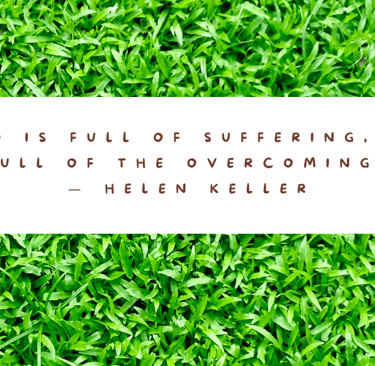The Persistent Puzzle of Human Suffering: Why Don’t We Fix What We Can?
This article explores the persistent puzzle of human suffering, distinguishing between the unavoidable and avoidable kinds. It examines why, despite the possibility of solving many issues, suffering remains prevalent. The piece delves into the complexities of societal systems, human nature, power dynamics, and the role of empathy in addressing suffering. By highlighting the impact of small actions and the importance of questioning the status quo, it advocates for a collective effort towards a more just and compassionate world. #HumanSuffering #SocialJustice #Empathy #SystemicChange #EndPoverty #CollectiveAction #Compassion #GlobalIssues #SocialImpact #ChangeMakers #ActWithPurpose
Ujjvala
8/12/20244 min read


In our daily lives, we often encounter reminders of the suffering around us—whether it’s news of poverty-stricken families, stories of violence over trivial amounts of money, or the silent struggles of those around us. It’s easy to feel overwhelmed by the magnitude of these issues, yet there’s a lingering question that many of us ponder: If so much of this suffering is avoidable, why don’t we just fix it?
The Unavoidable and the Avoidable
First, it’s important to distinguish between two types of suffering. There’s the kind that’s part of the human condition—illness, aging, loss—inevitable challenges that every person will face in one form or another. But then there’s the suffering that arises from human actions, systems, and choices. This is the suffering we create, and it’s often the most troubling because, in theory, it’s avoidable.
Take, for example, the tragedy of a farmer in a rural area who ends their life over a debt of just a few thousand rupees. The amount is so small that many of us might spend it without a second thought, yet for that farmer, it represents an insurmountable burden. Or consider the stories of people who commit crimes out of desperation—stealing or worse—because they can’t afford to feed their families. These are not just isolated incidents but symptoms of a larger problem in how our societies function.
Why Don’t We Just Solve It?
The solutions to these problems often seem so simple. Redistribute resources, provide education and healthcare, ensure fair wages—basic, straightforward ideas that could dramatically reduce suffering. Yet, despite decades of development and countless initiatives, these problems persist. Why?
1. Complex Systems Resist Simple Solutions
Societies are made up of intricate, interconnected systems—economic, political, social. Changing one part often requires altering many others, which can be difficult, slow, and unpredictable. For instance, while redistributing wealth could alleviate poverty, it would also require massive changes in tax policies, economic structures, and societal attitudes. These changes don’t happen overnight and often face resistance from those who benefit from the current system.
2. Human Nature and Short-Term Thinking
Human behaviour is influenced by a mix of self-interest, fear, and short-term thinking. While many people do care about the suffering of others, they may prioritise their own needs, comfort, and security. For example, a corporation might choose to maximise profits by underpaying workers, even though they know it contributes to inequality. Similarly, individuals might ignore the plight of others simply because it doesn’t directly affect them.
3. Power Dynamics
Those in positions of power—whether in government, business, or society—often have a vested interest in maintaining the status quo. Wealth and power are closely linked, and those who have both may resist changes that threaten their position. This is evident in the reluctance to implement policies that would genuinely reduce inequality, such as higher taxes on the wealthy or stronger labour protections.
4. Lack of Empathy and Awareness
Many people simply aren’t aware of the extent of suffering in the world, or they may not fully empathise with those who are struggling. For example, someone living comfortably in a developed country might not understand the daily reality of someone living in extreme poverty. This lack of awareness can lead to apathy, where people feel no urgency to take action.
5. Inertia and Resistance to Change
Even when people recognize the need for change, there’s often resistance—both personal and societal. Habits, beliefs, and structures are hard to change, and there’s often a fear of the unknown. A community might resist new policies that would benefit the greater good simply because they’re unfamiliar or seem risky.
The Ripple Effect of Small Actions
Despite these challenges, change is possible. It starts with small actions and grows from there. Consider the impact of grassroots movements, where communities come together to support each other. For example, local food banks, community gardens, and mutual aid networks have provided critical support to those in need, demonstrating that even small, collective actions can make a significant difference.
On a larger scale, policy changes—like increasing the minimum wage or providing universal health care—have lifted millions out of poverty and improved quality of life. These changes didn’t happen overnight; they required years of advocacy, education, and persistence. But they prove that when people come together and push for what’s right, real progress can be made.
Why It Matters That We Keep Asking “Why?”
It’s easy to become cynical or disillusioned when faced with the enormity of global suffering. But the very act of questioning why things are the way they are is crucial. It’s the first step in recognizing that change is necessary and possible. When we ask why people suffer needlessly, we begin to see the cracks in the systems around us. We start to realize that many of the problems we face are not inevitable—they’re the result of choices, and they can be changed.
A Collective Effort
Real change requires a collective effort—individuals, communities, and institutions working together. It requires empathy, awareness, and a willingness to act, even in small ways. Imagine if everyone committed to small acts of kindness, to educating themselves and others, to voting for policies that promote equality and justice. The ripple effect could be enormous.
Conclusion
Life is indeed full of suffering, but much of it is within our power to change. By asking “why” and refusing to accept unnecessary suffering as inevitable, we can begin to create a world where everyone’s basic needs are met, and where compassion and justice guide our actions. It’s not an easy path, but it’s one worth walking—together.
Contact
Email: support@ujjvalamore.com ujjvalamore88@gmail.com
Call: +91 70588 47820


I am sorry Please forgive me I thank you I love you I forgives myself
